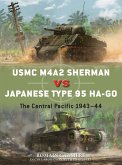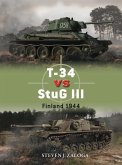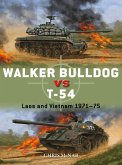In the summer of 1944, across the battlefields of Normandy, US tanks were confronted with a dangerous challenge: the mobile and deadly Panzerfaust and Panzerschreck anti-tank weapons wielded by the German infantry. Having only occasionally encountered such weaponry before, the US tankers were ill-equipped to defend against this kind of attack, and the threat only increased as the summer wore on.
This Duel title follows the technological battle for dominance that ensued, as the US Army devised new ways to defend against the threat posed by the German shaped-charge projectiles. From the addition of sandbags and spare tracks to individual tanks made by anxious crews on the ground to the large-scale programmes put together by the US armies, the book explores the implementation and effectiveness of the various tactics employed by the tank crews, as well as the technology behind the anti-tank weapons wielded by their German adversaries. Drawing on first-hand accounts from the men on the ground, this illustrated title examines the evolving trial of strength between US armour and innovative German anti-tank weaponry in the climactic months of World War II in Europe.
Hinweis: Dieser Artikel kann nur an eine deutsche Lieferadresse ausgeliefert werden.
This Duel title follows the technological battle for dominance that ensued, as the US Army devised new ways to defend against the threat posed by the German shaped-charge projectiles. From the addition of sandbags and spare tracks to individual tanks made by anxious crews on the ground to the large-scale programmes put together by the US armies, the book explores the implementation and effectiveness of the various tactics employed by the tank crews, as well as the technology behind the anti-tank weapons wielded by their German adversaries. Drawing on first-hand accounts from the men on the ground, this illustrated title examines the evolving trial of strength between US armour and innovative German anti-tank weaponry in the climactic months of World War II in Europe.
Hinweis: Dieser Artikel kann nur an eine deutsche Lieferadresse ausgeliefert werden.









